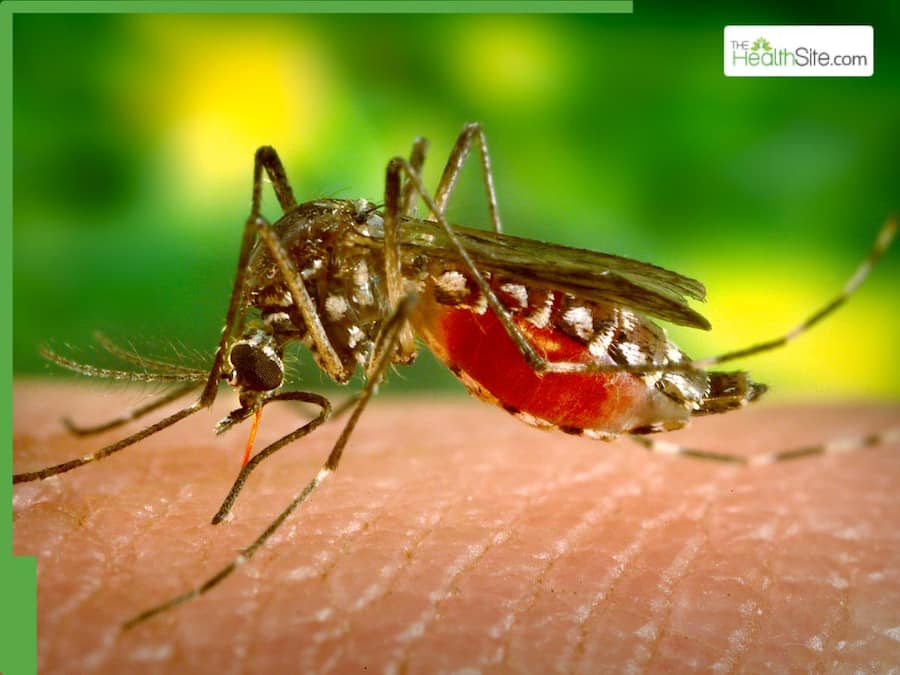Monsoon Threat In India: 5 Health Conditions That Monsoon In India Can Trigger

The monsoon has officially arrived in India, and many parts of the country are already witnessing extreme rainfall, whereas the other others are experiencing overcast skies. Despite the relief it gives from the Scorching heat, it also brings some of the most threatening health hazards. The sudden change in the weather, the waterborne diseases, the rains that prompt other factors that become the driving source of serious diseases, and the compromised sanitation to inefficiently tackle all pose a strain on the health of an individual and the health care system
Monsoon is the time of joy, but on the other hand, what causes it a serious strain is the fact that it also ends up making the breeding ground for several diseases, the threat calls for the right awareness, and attention to reduce the scope of the spread of infection.
One of the most rampant diseases during the monsoon time is dengue, as it is caused by a virus which is transmitted by specific mosquitoes called Aedes, that are known to breed in stagnant or still water. This is a serious condition and must be prevented. To eliminate the scope of the spread, you can take measures like eliminating mosquito breeding sites, using mosquito repellents, and wearing protective clothing.
This is another condition that strikes with the onset of monsoon, unlike dengue, which is driven by mosquitoes. Leptospirosis is a bacterial infection that is known to spread through contact with water polluted or contaminated with the urine of infected animals, rodents. For prevention, there are several measures that you can practice, like avoiding wading in floodwaters and protecting open wounds if exposure is unavoidable.
A well-known condition, as it is pretty common in India and gets exacerbated during the time of monsoon season. Typhoid is a serious bacterial infection that can spread through contaminated food and water. This is more prevalent in areas where there is a lack of sanitation. The scope of typhoid can be prevented through extremely simple ways that involve ensuring that the drinking water is safe. If you don't have a water purifier, then you can simply boil it. Practising good hygiene through ways like regularly handwashing and consuming well-cooked food.
Malaria has been one of the most well-known health conditions in India, which has the possibility of its spread during the monsoon; it is another mosquito-borne illness that is known to spread by specific mosquitoes called the Anopheles. Being another mosquito-driven condition like dengue, its prevention too is similar to that of it, which includes focusing on mosquito control through various ways, like eliminating areas where water can accumulate, and personal protection can be helpful too.
This one may seem to be quite common and not so alarming, but any negligence in treating viral and flu infections can lead to some serious health complications. Escalated by the monsoon, there are respiratory illnesses that are known to be exacerbated by fluctuating temperatures and humidity. You can prevent it by maintaining hygiene, working to
Strengthen your immunity, and make sure that you avoid any close contact with infected individuals.
These are serious conditions and must not be dealt with lightly, if you happen to contact any of these diseases then it is recommended to consult a doctor as any delay can end up being a serious, moreover to prevent the further scope of these diseases you can make sure to take care of certain things like hygiene through washing hands, drinking safe water, taking vitamin C rich foods and choosing ways to limit mosquitoes exposure.








:max_bytes(150000):strip_icc()/all-the-sharks-header-8fd4429aeeba40ada3f7610a02c987f7.jpg)
:max_bytes(150000):strip_icc()/PARENTS-kid-with-rsv-8916882d2be64716905242bcc2755790.jpg)


